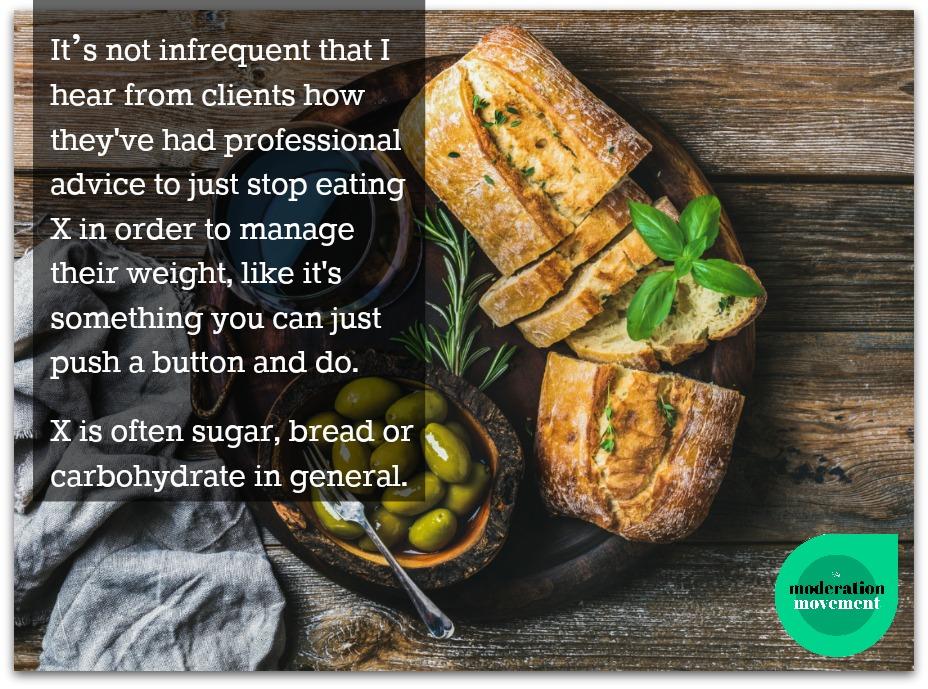Things to consider when giving dietary advice

Do you ever give dietary advice that you yourself, would not be able (or want) to follow?
It’s not infrequent that I hear from clients how they’ve been given professional advice, often from a physician, that they just stop eating X in order to manage their weight, like it’s something you can just push a button and do.
X is often sugar, bread or carbohydrate in general.
The point of this piece is not to debate whether or not the human body needs carbohydrates to be physiologically healthy, the point is we are not machines and we cannot have physiological health without mental and emotional health.
If you give dietary advice, please pause for a moment and consider what you are asking someone to do – quite possibly for the rest of their life.
When you advise someone that they would be better off health wise if they just stopped eating carbohydrates, this is really what you are saying…
- You are saying this person can never eat out again freely or normally.
- They can never travel overseas, be that Europe, Asia or South America and enjoy the local cuisine.
- They can never again partake in a traditional Christmas meal with family or friends.
- They can’t celebrate birthdays with cake, Easter with chocolate or take part in the ritual of almost any other special occasion you can think of.
- Not only are you asking that person to avoid fully partaking in life, you are asking them to significantly alter two basic human needs, the need for food and the need for human connection.
Human connection is vital to health and for 1000s of years, humans have connected socially around food. Interfere with this and you interfere with a person’s right to live a full and meaningful life.
I would like acknowledge those with true food allergies, Coeliac disease or any other condition that requires complete avoidance of a food, as this can also make travel and special occasions difficult. However, in these cases, complete avoidance is life dependant or can have serious health consequences. This is not the case with advice to avoid certain food for weight control.
